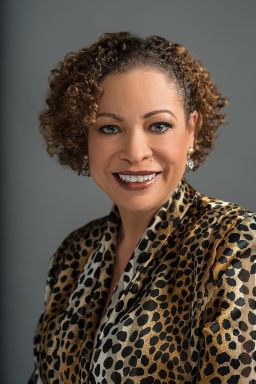Editor’s Note: Annette R. March-Grier is a registered nurse and the founder and president of Roberta’s House, a nonprofit grief support center for children and families in Baltimore, Maryland. In 2014, she was honored as a CNN Hero. The views expressed here are hers. Read more opinion on CNN.
As anyone who has experienced grief can attest, it is a powerful emotion that can lead to productivity or destruction – depending on how it is managed.
Right now, millions of Americans are grieving. Covid-19 has already claimed the lives of over 100,000 Americans, and it’s taken the jobs of millions more. A disproportionate number of those impacted by covid-19 are African-American. And now many Americans of all colors are mourning the death of George Floyd at the knee of one former Minneapolis police officer who has been charged with second degree murder.
The result has been an explosion of grief throughout the country. Many have taken to the streets in protest, crying out for justice and sharing their unresolved and complicated grief for all the country to see.

As the founder of Roberta’s House, a non-profit bereavement center in Baltimore that supports a largely African-American community and which serves over 4,000 individuals and families per year, I know the importance of working through grief. But just as critically, I know we must examine the driving causes of that grief – and take concrete steps to address them – so we can break these cycles of pain and loss.
Covid-19 has exposed some of these drivers – including disparities in health care, income and education which had already weakened the resilience of those most underserved. Many of us are the essential workers. Many of us suffer from chronic diseases such as hypertension, heart disease and obesity, and too few of us have adequate health insurance. Here in Baltimore City – a predominantly African-American area – the mortality rate is 30% higher than the rest of Maryland.
Grief was already overwhelming in the African-American community well before the pandemic exposed these inequalities. And the trauma of witnessing a black man being murdered by a white police officer reminded us of the larger issue – the systemic racism permeating society. Some have compared it to a modern-day lynching.
So, how are we to respond? Grief can manifest as anger, rage, helplessness – even powerlessness. Anger is a powerful emotion. It can be uncontrollable at times, and especially for those who feel they have nothing left to lose.
The reason is simple. When we are unable to express and make meaningful sense out of our loss, we may eventually explode – and that explosion could be destructive. Whether it’s physical, emotional, or spiritual, the compounded pressure needs to be released.
The protest and rioting that has swept the country in the wake of the killing of Floyd isn’t just about the murder of one man. This reaction represents the fear for every black son, brother or father. This is shared grief – communal grief – as a result of a long history of trauma, loss, and suppression within the black community.
However, communal grief does not always have to be destructive if embraced by a society that shares compassion and forgiveness. Sobonfu Some, a notable voice of African spirituality, says, “Communal grieving offers something that we cannot get when we grieve by ourselves. Through acknowledgment, validation, and witnessing, communal grieving allows us to experience a level of healing that is deeply and profoundly freeing.”
Acknowledgment is the first step in reconciling with the loss, and our country is on the right path. We are turning this tragedy and communal grief into something potentially quite productive – and I remain optimistic.
Get our free weekly newsletter
As the primary grief resource in Baltimore, Roberta’s House is on the front lines of this fight – addressing the losses of children, teen and families living in Baltimore City and Prince George’s County. When Covid-19 hit, we, like many non-profits, had to alter our daily activities, reorganize and learn how to conduct virtual support groups to continue to meet the needs of our community. In the aftermath of George Floyd’s death, we will continue to answer the call.
We are also constructing a new, full-service grief support center that will be completed in the fall of 2020 – the first to be founded by African Americans in the US. The new center will allow us to serve more with multiple support programs and individual counseling services.
We aim to meet the unmet needs of an underserved, marginalized community addressing grief and loss. And we hope that by creating a space where those who are grieving can heal, we can begin to alter the course of the future – for the better.


